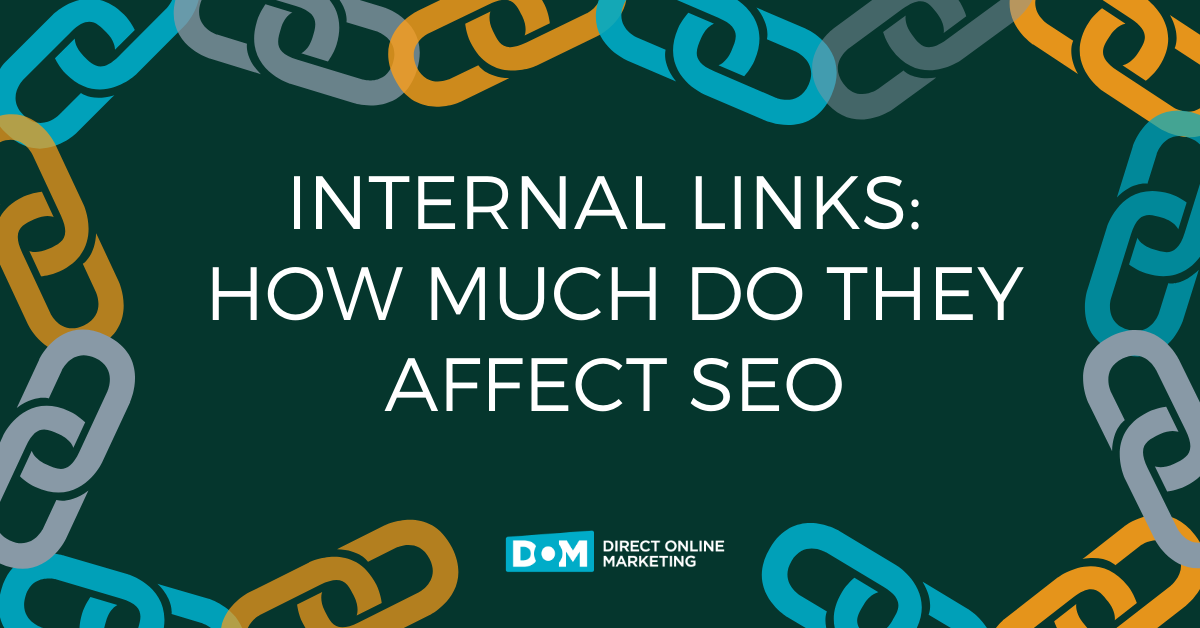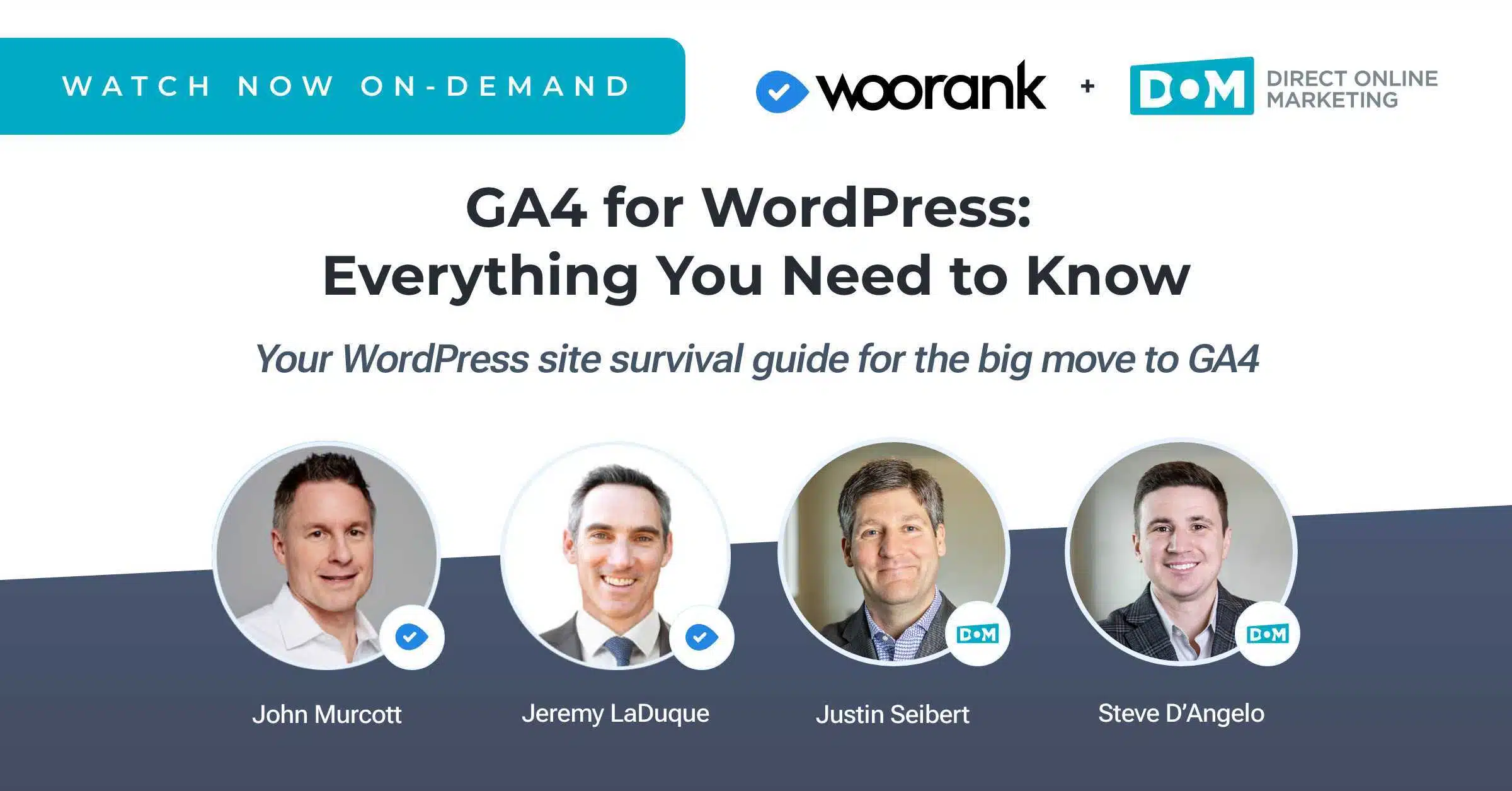Welcome faithful readers. And I mean really faithful, if you’ve been waiting specifically for a post from me as it’s been awhile. I won’t make any promises, but I fully intend to do some more posts just to offer a different perspective on how the business community should view internet marketing.
Paul said my digital marketing blog was the main reason he was interested in Direct Online Marketing™ in the first place. Maybe he was just sucking up for a nice holiday bonus, but I’ll take him at his word since he’s always been honest with me and his readers as far as I can tell.
Paul mentioned in yesterday’s post that we have in fact updated our little blog. Let me explain the reasoning behind it, which, contrary to popular opinion, is not to feed Paul’s wordpress fetish.
The main impetus for the switch is to allow commenting, which I want to address here. Contrary to popular opinion among bloggers (love to get everyone’s opinion here in the comments whether you post or just read and comment), I think it’s acceptable to have blogs that don’t offer commenting.
Having said that, it’s not preferable. We didn’t offer commenting before for one reason: time. When I first started the blog, we were a very tiny company with only enough staff to do some selling and satisfy our clients. I was worried about comments getting out of control and me not being able to monitor or respond quickly enough.
But then, enter Paul Woodhouse stage right (the anti-Snagglepuss if you will), and we made it a priority to add commenting.
So if you’re new to the Direct Online Marketing Blog™ and are wondering why we have a year’s worth of posts without any comments, now you know. We didn’t start allowing them until December 2007.
I also want to segway from our situation into something more applicable to business owners considering starting corporate blogs. My fear about not having enough time to keep up with comments is different from, but related to, two of the biggest fears I hear from business owners thinking about jumping into the fire. One is legit, the other is not.
Common Fears about Corporate Blogging
1. Getting badmouthed (the illegitimate fear). I call this illegitimate, but perhaps that’s not correct. The fear itself is very valid, but I think that fear goes away with some knowledge about blogging. Almost every time I present blogging as an option to business owners, I hear something like, “What if my competitors slam us?”
My old boss’ father used to tell him: “You only get two chances to make a first impression: the first time you meet someone and the first time you screw up.” When you encounter negative comments, I see that as getting to make your first impression for the second time – whether or not you did in fact screw up. By responding quickly with real answers in a real conversational tone, you come off smelling better than you ever would have without the negative comment being placed at all.
People like seeing that there’s a true face to the company, that face cares, and they can engage in a conversation. And if it really is a competitor messing with you, typically your readership will come to your defense. Plus you always have controls to guard against things like profanity, spam, and unreasonable commenters, although use that stick lightly.
2. Time (the MC Hammer 2 Legit to Quit fear). This is by far and a way, the most often recited reason I give to companies when I tell them not to blog. If you don’t have the time to blog (or monitor comments, as was our case for not including them), don’t.
It varies by industry, but my rule of thumb is to not do a blog unless you can reasonably put up a post at least once per week. You can also hire an outside firm to blog for you, but there needs to be a lot of thought that goes into this option, not the least of which is transparency. If you’re viewed as a flog, you could have a serious backlash.
Bottom line: don’t start blogging to start blogging. Do it with a purpose, a unique voice or perspective, and devote enough time.
In reviewing our plans for 2008 with a client, we suggested they start a blog.
I thought I didn’t have a chance with this one since the President had never even read a blog before. He had further been turned off by hearing at some online marketing conferences that blogs were necessary for everyone (not like this internet marketing conference where Lindsay Patross explained what blogs and their benefits are and allowed audience members to make up their own minds).
After going back for twenty minutes or so, realizing he would have time, that it would be a good potential outlet to address industry hot topics and further their credibility, and that he could own his traditional, non-techy industry, he decided to give it a shot. But that was after discussing both the positives and negatives with someone with intimate blogging knowledge – not on some whim.
So if you’re interested, do your homework. As long as you have the time, blogs could be right for your business.
Oh, and if you’ve previously downloaded our RSS feed, you shouldn’t need to download a new one after this switch over. If you’re having problems, though, please let us know.


